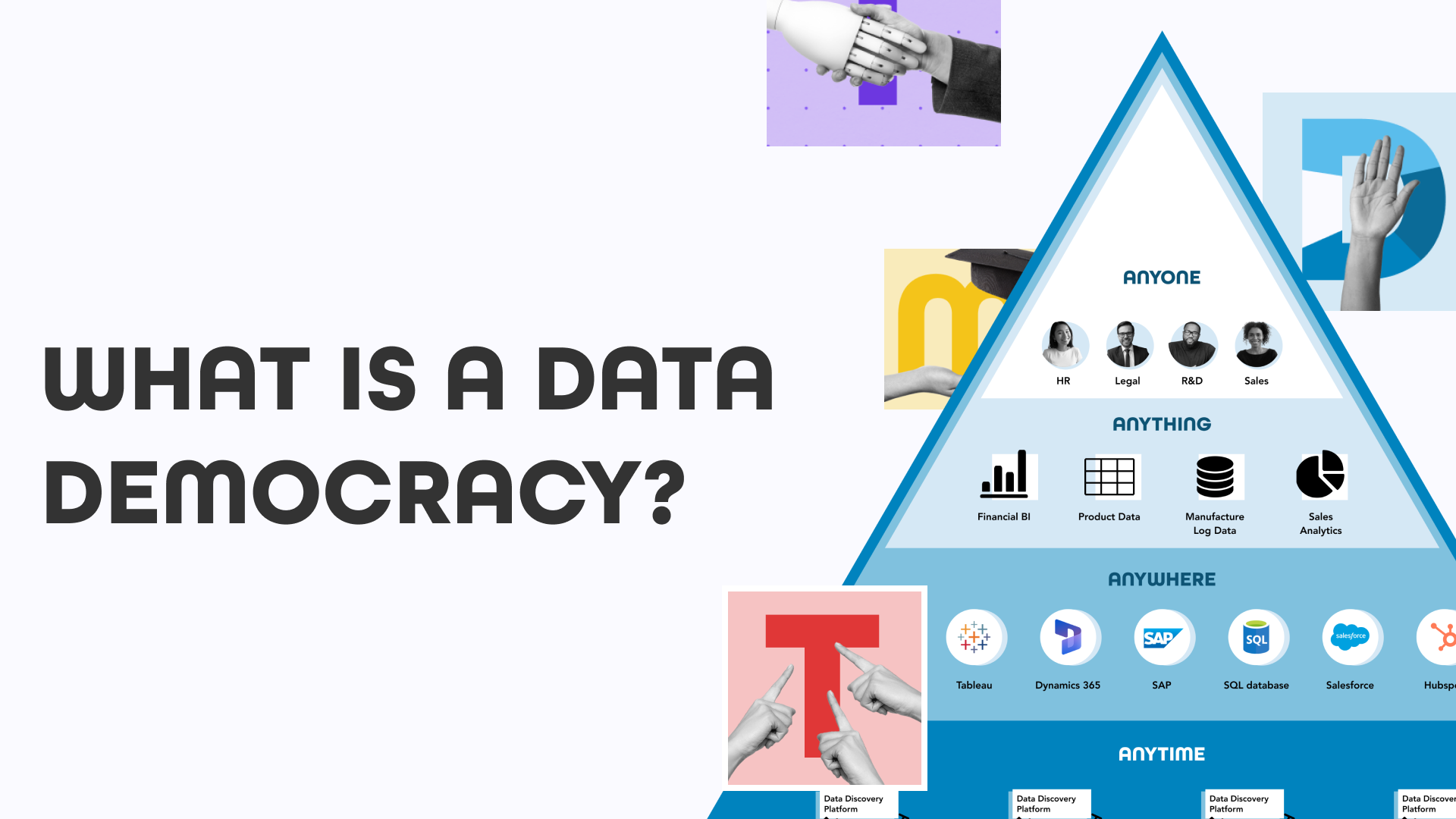Written by renowned O’Reilly author Ole Olesen-Bagneux, this ebook series exposes a completely new way of thinking about data in your company: the Data Democracy.
In this article, discover highlights from the first chapter of his ebook series “The Data Democracy” with a focus on what a data democracy is, why you need a data democracy, and the means of achieving it.
Why do you need a data democracy?
The purpose of a data democracy is to give every employee the possibility to thrive and progress in their career – by using company data to push forward on complex agendas and innovate.
A data democracy is also an invaluable advantage not only for the employees but for the company itself: Every company must encourage surprising, experimental usage of data to prosper and stay competitive. A data democracy enables companies to scale faster, and adapt in changing markets – all while its employees learn and grow!
We see data democracy as a logical target state of a term that has been floating around in the global data community these years: data democratization. Data democratization describes how modern, cloud-based tools with simple interfaces have ignited easy usage of data. More and more employees in more and more companies are doing more stuff with data – which is great!
However, quite surprisingly, just as data democratization as a process has been described and discussed, just little has its target state been defined.No one seems to know what a data democracy is. This needs to change. So what is a data democracy? Let’s define it!
What is a data democracy?
An enterprise data democracy can be defined as a capability in an enterprise that enables anyone to find and use anything, from anywhere, at anytime. Let’s break it down.
Anyone
Anyone should be able to search for data – and use whatever data they want. It is hard to find companies that oppose this. But – it is just as hard to find companies where this is possible. What does it take to search for your company data? If there is no dedicated platform to search for data, then, how can you actually expect anyone to be able to search for data – and in this way be able to participate in a data democracy?
In most companies, far from anyone can do this. Rather, it is but a few select data engineers and -scientists that work intensively with data, that can actually search for data. And even they suffer: They too dream of being able to search for data in a frictionless, smooth way. In a data democracy, anyone should be able to search for data. It’s employees in Human Resources, in your Legal department, in Research & Development, in Sales – and so on.
Remember that anyone means you, me, them – all of us! Anyone in the company!
Anything
When we talk about data democracy, we in fact talk about all data: anything. Far too many employees only have access to a very small part of the entire data landscape in their company. Employees are locked by their professional role: this defines their access to IT systems, and even what parts are inside those IT systems. Therefore, all employees in a company – anyone – need a place where they can search for all data in their company: Anything, meaning simply, all types of data from all over the company.
Anywhere
Not only must anyone be able to find anything, they also need to be able to do so from anywhere. Anything means all types of data – whilst anywhere is where the actual IT landscape comes into play. The same type of data can be placed in various different systems that deliver the same capability. In short: every company is different, both in terms of the data they have, but also in terms of the IT systems they store that data in. For anyone to be able to find anything, you need a dedicated solution. This is a data discovery platform. The benefit of this solution is that it only exposes metadata. Therefore, no confidential data is exposed or used – in this way, anyone can discover anything without risking compliance or regulatory issues.
Anytime
Finally, data needs to be discoverable and available anytime. On your data discovery platform, all data must be discoverable anytime in the sense that the metadata must be fresh and represent the sources adequately. Certain data sources change a lot, and they need to be continuously mirrored in the data discovery platform, to be relevant for discovery, whilst others are more static and only need to be updated once in a while.
Start your Data Democracy Journey – Download our Ebook Series
By signing up for our Data Democracy ebook series, discover a completely new way of thinking about data in your company. Learn about:
- Why you need a data democracy, the causes of the absence of data democracies in companies, and what you can do about it,
- The frightening alternatives to a data democracy (such as a data tyranny, monarchy, etc.)
- The reality of the data government you find yourself in and how we can help you build a data democracy.













